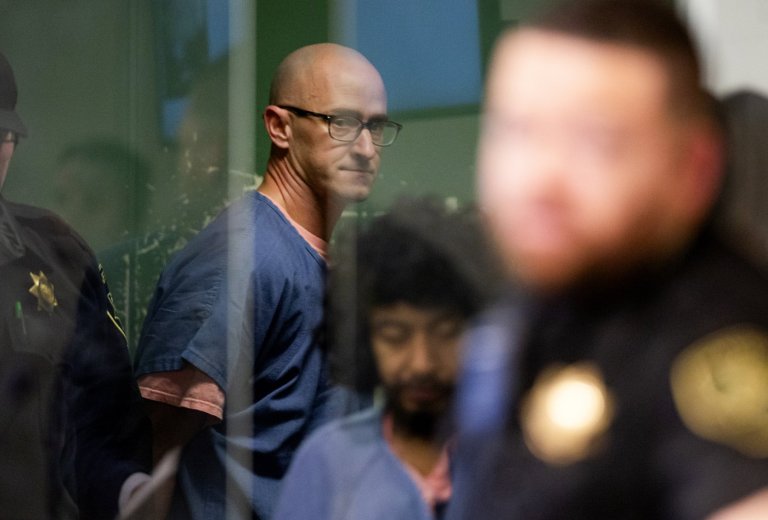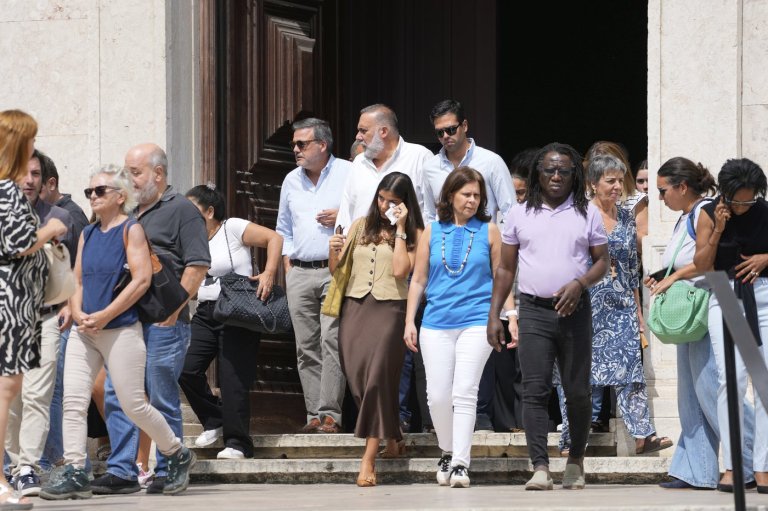Editorial Roundup: New York
New York Post. May X, 2023.
Editorial: Weed ruins young men’s mental health, study shows: STOP legalization
Oops: A massive new study proves the normalization of cannabis use is an ongoing social disaster.
You’ve got to be under the influence — of toxic ideology, if not pot itself — to ignore the evidence.
Researchers analyzing the health data of 6.9 million people have linked weed use to hugely increased mental-illness rates among adolescent males — including as much as a shocking 30% of schizophrenia cases among young men.
The trend represents not just greater use, but the increasing potency of weed and weed products.
That will only keep rising as the profit motive and industrialization of production, now that it’s so widely legalized, promote delivery of ever-more concentrated THC (the psychoactive chemical in weed) to users.
Schizophrenia is one of the most serious, and tragic, psychiatric disorders.
It can be treated, but patients often go off their meds, become homeless or semi-homeless and terrorize public spaces before harming or killing themselves or others.
So the sheer size of the study and the magnitude of the effect should make the nearly 70% of Americans who generally back legalization take a hard look in the mirror.
Including policymakers.
Here in New York, the rollout of legal weed has been an utter disaster.
With few legit shops, illegal ones have sprung up everywhere.
They are targets for crime, with violent robberies at such places up massively this year.
That’s a far cry from the “equity” paradise left-wingers in Albany promised from legalization.
And there’s zero way to ensure the shops are following the law on selling only to over-21s.
But the larger problem is the normalization of weed.
Above all for impressionable teen males, precisely the group most at risk here.
The numbers prove it.
Emergency calls related to pot use among 6- to 18-year-olds have jumped 245% since 2000. At one NYC addiction clinic alone, 95% of recent admissions were driven by cannabis.
Anti-drug laws hold society together.
___
Wall Street Journal. May 5, 2023.
Editorial New York’s Perfect Progressive Priorities
No gas stoves in new buildings, and only a handful of new charter schools.
The Democratic left is running New York state these days, and Kathy Hochul appears to be largely Governor in name only. That’s the message from the $229 billion state budget that passed this week after months of haggling behind closed doors. The biggest losers are parents hoping for a good charter school for their children.
Ms. Hochul went into the talks with priorities she knew would be a hard lift in a Legislature controlled by progressives. They included modest bail reform, which passed, and her signature plan to expand housing by allowing the state to override local zoning laws, which was rejected.
Alas, she also succeeded in getting the first statewide ban on natural gas in most new construction beginning in 2025, which was also a progressive priority. When the Consumer Product Safety Commission first raised the idea of banning gas stoves, New York Sen. Chuck Schumer dismissed it as myth pushed by “shameless and desperate MAGA Republicans.” Care to revise and extend your remarks, Senator?
The Governor says the new ban doesn’t ban existing gas stoves. But it is the first step in making gas appliances more costly and difficult to replace. Consider this an echo of another infamous political promise: if you like your gas stove, you can keep it. This is part of the progressive method of denying that they favor an unpopular policy when it is first publicized, but then implementing it on the sly and gradually so current voters don’t get too upset.
Ms. Hochul’s most embarrassing loss was on charter schools. As a candidate she had called for raising the state cap on charters of 460 schools. She compromised with herself on that by proposing in her budget to keep the cap but eliminate the regional caps.
That would have allowed New York City, where charter demand is high and which hit its cap of 275 schools in 2019, to add more than 100 new charter schools. But she settled for merely allowing the licenses of 14 “zombie” charters—charters that either closed or never opened—to be transferred to new schools in New York City.
It didn’t help that the Governor gave unions what they wanted at the start of negotiations—a record 10% increase in state cash for public schools without getting anything in return. Even the 14 zombie charters came at a price. None of the charters can be located in a district that already has 55% of its students in charter schools. This logic is the opposite of the movie “Field of Dreams”: if they show they want to come, you can’t build it.
We could go on about the rest of the budget, but these lowlights are depressing enough for one day. The New York budget is a perfect expression of progressive priorities: Tell people how to cook, and where their children can go to school. If you don’t like it, move to Florida, which sounds better every day.
___
Dunkirk Evening Observer. May 8, 2023.
Editorial: New York State More school aid worsens problems
Last week must have felt like Christmas morning for many of the region’s school superintendents and school board members.
Passage of the state’s school budget bill on Tuesday brought with it $30,687,272 in additional state Foundation Aid to the area’s schools. While a few schools — Ripley, Panama, Forestville, Bemus Point, Clymer and Cassadaga Valley — saw aid increases between 3% and 5%, many districts will see much bigger increases.
It’s one of the few things that Republicans and Democrats agreed on in this year’s state budget.
And that’s part of the problem.
It’s easy for state legislators to come back to their home districts after a long, drawn out budget process and point to additional state aid as something they brought home to their constituents. But all that additional aid does is prop up an education system that already wastes taxpayer money. Now, we’re just wasting more.
New York already spent, by far, more money per pupil than any state. U.S. Census data released in May 2022 showed New York spending $25,519 per pupil — 89% more than the national average of $13,494. That disparity only grew after the last two years of record education spending approved in the 2022-23 and 2023-24 state budgets. Few are satisfied with the results on state or federal examinations that measure student learning, and the state is in the midst of revamping its graduation requirements after years of complaints that too many students were graduating from New York’s schools unprepared for college or a career.
In a couple of weeks local voters will go to the polls to approve school budgets. Most, if not all, of those budgets will pass — especially with little financial pressure after the influx of federal stimulus money and now the state’s extra windfall of state aid.
But no one should be deceived. We have not solved our school’s structural issues. In fact, we’re making them worse.
Rural counties like ours are spending tens of millions of dollars more each year to educate fewer students, to offer fewer classes and fewer educational and extracurricular opportunities. There are savings to be had that could be poured into creating a better school system for our county’s youth — but no one will want to have those discussions now.
A strong balance sheet doesn’t mean we have solved the issues facing our schools. We’ve just papered over them with crisp $100 bills.
___
Advance Media New York. May 8, 2023.
Editorial: NY state belatedly cracks down on illegal cannabis sellers
In another case of too little, too late, Gov. Kathy Hochul and state lawmakers enacted 20 pages of new regulations in the state budget to tamp down the thriving “gray market” in cannabis and cannabis-related products.
Thousands of pop-up weed shops and members-only clubs are flourishing in the absence of legal places to buy cannabis, thanks to the glacial rollout of retail licenses by the state Office of Cannabis Management and delays in leasing suitable locations by the state Dormitory Authority. OCM lists eight verified dispensaries in the entire state of New York. Eight. In a state of 19 million people.
The new law gives OCM the power to seize illegal cannabis and to assess civil penalties of up to $20,000 a day against unlicensed cannabis businesses. The state Department of Taxation and Finance is empowered to inspect cannabis retail operations and to fine businesses up to $100,000 if taxes are not being paid. The law makes it a crime to defraud the state of cannabis taxes.
If this all sounds like a bureaucratic, indirect way to shut down pop-up weed shops — akin to locking up gangster Al Capone on tax evasion charges — that’s by design.
Albany decriminalized marijuana and created New York’s legal cannabis framework to benefit the people most harmed by the government’s war on drugs. Lawmakers are wary of amping up criminal penalties for fear of returning to the bad old days of over-policing and mass incarceration that disproportionately affected communities of color.
But the civil fines and penalties are hardly a deterrent to businesses raking in millions of dollars in illegal cannabis sales. It’s a game of Whac-A-Mole, with shops closed down today popping up down the street tomorrow.
Illegal retailers are taking a bite out of legal growers and sellers who are playing by the rules. The state is missing out on tax revenues. More importantly, pop-ups are selling products that have not been tested for purity, potency and toxic additives, and may be packaged illegally in a way that entices young people to partake.
Down the road, adult users who are accustomed to cut-rate prices from their local pop-up shop may balk at paying for taxed products from legal sellers. In a bit of wishful thinking, OCM recently launched a public relations campaign appealing to cannabis buyers’ civic duty to support the legal market … whenever it opens.
Of course, the new law curbing illegal cannabis retailers is only as good as efforts to enforce it. The legislation is silent on how OCM and the Department of Taxation and Finance will staff up to accomplish this new mission.
It also is the product of closed-door negotiations among Hochul, Senate Majority Leader Andrea Stewart-Cousins and Assembly Speaker Carl Heastie. There were no public hearings, no input from industry people or law enforcement, or from mayors coping with the proliferation of illegal weed operations in their cities and residential neighborhoods. Syracuse passed its own law in December to rein in illegal pot sellers using code enforcement. But gray areas in the law make it hard to police gray-market pot sellers, as staff writer Don Cazentre recently reported.
Former Gov. Andrew Cuomo made an art of legislating policy through the budget process. At least he managed to pass budgets on time. Hochul crammed even more policy than usual in this year’s budget, including bail reform (again), a minimum wage increase and a ban on natural gas appliances in new construction. She is 0-for-2 on meeting the April 1 budget deadline.
At bottom, the budget is a lousy way to make public policy. These policies should stand on their own, be debated on their own and be voted upon on their own.
___
Albany Times Union. May 7, 2023.
Editorial: Making better sausage
New Yorkers deserve a more transparent, more democratic budget process.
Nobody ever said lawmaking was pretty. But does it have to be as big and ugly — and as undemocratic — as this?
With another state budget in the books, it’s worth remembering that there’s nothing inevitable about New York’s process: Budget details are hammered out by a small group of leaders, largely out of the public view, creating a document that often includes policy measures having little or nothing to do with the allocation of funds. And when the budget’s ready, lawmakers rush to pass it, sometimes without the usual three-day waiting period — why bother, they couldn’t change a word of it anyway — and may not know exactly what’s in the bills until after they’ve already voted on them.
To put it mildly, New Yorkers deserve better.
Our system puts budgeting power largely in the governor’s hands and strongly curtails the Legislature’s role in the process. Under the state constitution, the Legislature may not change any language in Executive Budget appropriation bills. They can reduce a funding amount or vote the bill down, but they can’t otherwise modify it.
This gives all the more power to the people who are, as Lin-Manuel Miranda puts it, in the room where it happens. Our leadership may have diversified beyond the old “three men in a room” trope, but that doesn’t mean the budget-crafting process is equitable. Closed-door negotiations largely shut out not only the public, but rank-and-file lawmakers, too. And that lack of transparency could leave New Yorkers wondering whether insiders or special interests have undue influence on setting the state’s priorities.
Another effect of this lopsided process: With lawmakers having so little leverage over what’s in the budget, it’s a tempting shortcut to getting policy passed. In recent years, policy initiatives that piggybacked inside a budget include a $15-an-hour minimum wage, paid family leave, Raise the Age legislation, workplace sexual harassment laws, a ban on single-use plastic bags, restrictions on the release of mugshot photos, the 2019 overhaul of the bail system and – in the most recent budget — an agreement to modify those bail laws to give judges greater discretion. Make no mistake: We’re not speaking here for or against those policy decisions, but for the circumstances under which they were made.
A system that diminishes most legislators’ ability to participate in the process of lawmaking undercuts the Legislature’s stature as a co-equal branch of government. And it weakens an important check on executive power.
Hashing out deals in public is messier. But the result is, frequently, better policy — honed through the committee process and reflecting priorities from different corners. What’s more, a more transparent process would arguably restore some much-needed confidence in government.
The constitution gives the Legislature the right to enact new appropriations (subject to the governor’s veto), but the Court of Appeals in 2004 restricted that ability, writing that amending the budget in that manner is “contrary to the idea of executive budgeting.”
So what’s left? Lawmakers can try to exert influence through budget delay — but all they might win for their brinkmanship is delayed paychecks, late budgets and a public narrative of government dysfunction.
To give the Legislature a greater role in setting budget priorities would require a constitutional amendment. But there are ways the process could be made more transparent and more inclusive. That might include a ban on using messages of necessity to pass budget bills before the public even knows what’s in them, restrictions on including policy without a fiscal component, and the broader use of committees for deliberations typically handled by leaders. Legislative hearings on possible changes would show New Yorkers that lawmakers care about opening the doors on the closeted budget process and letting the sun shine in.
END
Join the Conversation!
Want to share your thoughts, add context, or connect with others in your community?
You must be logged in to post a comment.


















